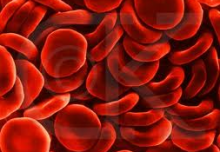 Please consider what I am sharing with you here to be the raw material side of recommending some recipes for your upcoming Thanksgiving feast. By raw materials, I mean that these recommendations are not recipes, strictly speaking, but I am recommending your feast this week have ample quantities of vitamins D and E. In fact, you might carry these doses over into your regular diet after this week.
Please consider what I am sharing with you here to be the raw material side of recommending some recipes for your upcoming Thanksgiving feast. By raw materials, I mean that these recommendations are not recipes, strictly speaking, but I am recommending your feast this week have ample quantities of vitamins D and E. In fact, you might carry these doses over into your regular diet after this week.
If you are like most folks who have been following advice on healthy eating, you already appreciate that vitamin D is very important for bone health and vitamin E is central to heart health. But what you may not have seen is that both of these also are important to brain health. Separate studies have shown that vitamin E can help to keep Alzheimer’s at bay and vitamin D can lower the risk of cognitive decline.
Starting with the case for vitamin E, researchers at New York State University have studied the effect of regular quantities of walnuts (rich in vitamin E) on what they termed “Alzheimer’s-susceptible mice.” Granted, these are animal studies, but the nutrition needs of mammals can be generalized to some extent. And their results published just this month were quite striking. The group of mice in their experiment who consumed regular doses of walnuts showed statistically significant improvement in learning, memory, motor skills and even anxiety levels over the mice who received no walnuts. (How do they measure anxiety in mice?) No surprise that walnuts contain Omega-3 fatty acids as well as other antioxidants which have been proven in other studies to ward off cognitive decline.
And then there is vitamin D. This was a study among older Italian adults rather than mice. The researchers tracked vitamin D levels of nearly 2,000 adults whose average age was 73.9 years for over four years. They found that those individuals with vitamin D deficiency or insufficiency (measured by their serum 25OHD) were more likely to have declining cognitive skills as measured by a standard test called the “Mini-Mental State Examination.” This was compared to their baseline test at the outset of the study which showed all participants to begin at comparable and robust levels of mental ability.
It is important to note that this second study simply noted the differences among individuals based on their blood serum levels and did not control what they ate. More testing will be needed to see if vitamin supplements can make a positive difference versus in mental capacity. And, of course, the first study was on mice, so it would be helpful to move this up to humans. And by the way, the amount humans would consume to give the equivalent dose for what the mice ate would be only about 1-1.5 ounces of walnuts daily.
So, if you are a caregiver to an older loved one this holiday, these two studies may not include any recipes, per se, but they do suggest what you may wish to add to your Thanksgiving spread as well as the dinners that will follow. And you don’t have to choose between these two vitamins; cover your bets by adding a bit of D and a bit of E.
Charlotte Bishop is a Geriatric Care Manager and founder of Creative Care Management, certified professionals who are geriatric advocates, resources, counselors and friends to older adults and their families in metropolitan Chicago. Please email your questions to info@creativecaremanagement.com.






